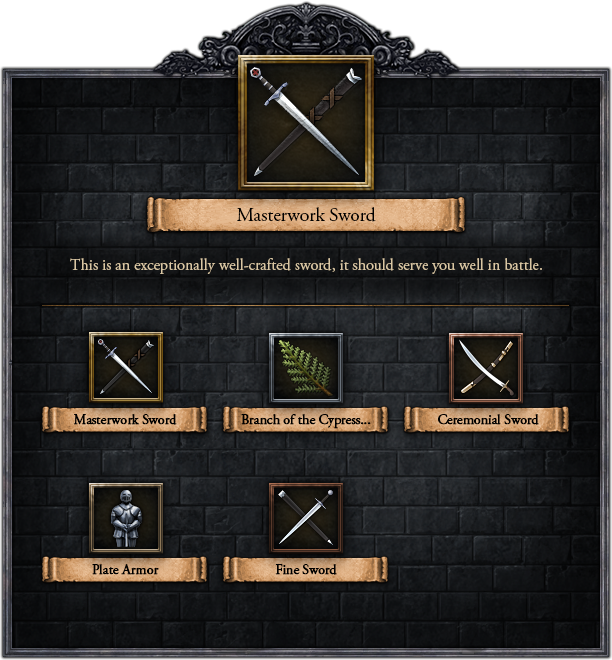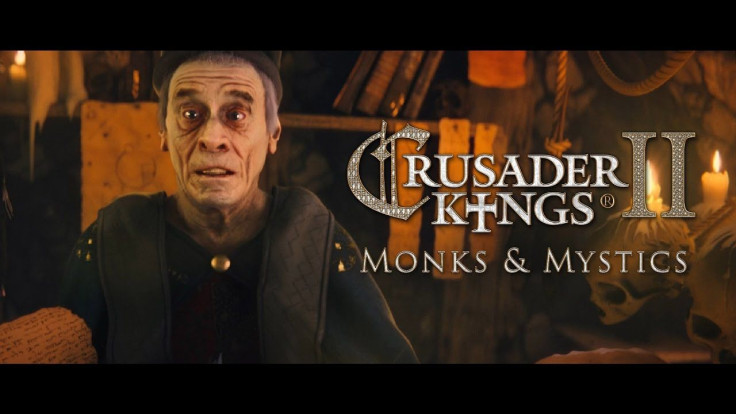It has now been five years since the release of Paradox’s superb medieval grand strategy game Crusader Kings 2. Most games would have long found a comfy place in the dustbin after all this time, when was the last time you fired up Max Payne 3 for example? Crusader Kings is not most games. Paradox continues to release updates andredefine the very gameplay experience of it all. After writing the headline for this piece, I was shocked because it basically could serve as a headline for a Diablo game. Crusader Kings is about as far as you can get from Diablo gameplay-wise.
The upcoming DLC Monks & Mystics, is so exciting precisely because it is so unexpected. While monasticism and social orders were a huge part of medieval life it is hard to imagine how they fit into the grand political landscape of Crusader Kings . Although the important thing about Crusader Kings to remember is that it is not a country simulator it is a ruler simulator. Below are some of the most exciting changes to look forward to in the update:
Sects:
The new core gameplay mechanic is sects. Sects are groups of people with a common understanding of the world and common goals. While the monastic orders are the most obvious example, the game will have stranger and more morally dubious options as well.
Being a part of a sect will make other members like you more and open up new gameplay options. The sects have ranks, so expect events that allow to raise your rank within a sect. Some of the stranger ones that have been announced in the development diaries are: Alchemists, and Devil Worshippers. Being a Devil Worshipper won’t be all fun and games however as it will make many of the more religious sects antagonistic towards you.
The idea of raising in rank in a society is something we’ve seen in RPGs like Skyrim , but it is new to Crusader Kings, at best it will add a whole new meaningful meta-game to the experience at worst it’ll be super fun to spread gnosticism or to spend your life trying to turn lead into gold with the other alchemists.
Monastic Orders:
The Monastic Orders will certainly be some of the more fleshed out sects. Like all sects you can rise in the ranks of the order. What is interesting is that being a part of a religious order can help your character get rid of some of their nasty vices. Some of the toughest moments in Crusader Kings comes from playing as a truly horrible ruler (unless that’s what you’re going for in the playthrough), vices can make you hated by your subjects and can make your options in events extremely problematic. If you were a kinder person you could maybe convince an enemy to befriend you with a feast but if you are a terror your only choices may be whether to maim or execute their heir. Neither of which are great for maintaining order.
By working with your fellow monks your character can learn to better themselves and turn vices into virtues. Also by studying and debating texts they will be able to make gains in the critical learning and diplomacy traits.
Treasuries
Just like any Lannister worth their salt covets a valyrian steel blade, people of the middle ages went gaga over artifacts. These could be religious, like the tooth of John the Baptist, or a nice sword that is passed down through the generations. You can even spend loads of cash to commission special swords or artifacts to be built. They will give you certain effects and can be inherited by your heirs.

Be careful though. Since they are physical objects, if your castle is sacked you risk the attackers running of with your prized reliquary. Some artifacts can be acquired on pilgrimages, others from great battles. The most fun part is you will have a visual treasury tab to see all your loot, something that feels very un- Crusader Kings but I think it will be a very fun addition.
It also will open up so many opportunities for people who play for flavor rather than power. Jealous of your neighbor’s Holy Grail, that’s a fine reason to go to war!
There is still much to be learned about the features of the DLC but it is shaping up to be their most exciting one in years.














![[EG April 19] Best 'Stardew Valley' Mods That Will Change](https://d.player.one/en/full/226012/eg-april-19-best-stardew-valley-mods-that-will-change.png?w=380&h=275&f=955520b8313253ee3c39c791f6210f38)



